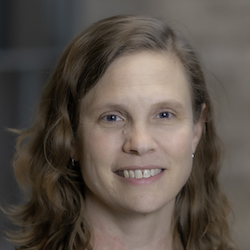Faculty Members Part of New NSF-Funded Center
SuReMin will conduct research to guide the development of a sustainable international minerals supply chain
Northwestern Engineering faculty members are part of a new global center funded by the National Science Foundation along with partner agencies from Australia, Canada, and the United Kingdom as part of the inaugural Global Centers Competition.
Sustainable, Resilient, Responsible Global Minerals Supply Chain (SuReMin) is an international collaboration between researchers at Northwestern University; Montana Technological University; Pontificia Universidad Católica de Chile; the Sustainable Minerals Institute (SMI) – an entity of the University of Queensland (Australia) located in Santiago, Chile; the Universidad de los Andes, and the Universidad Iberoamericana (Mexico). SuReMin will conduct research and develop educational opportunities to guide the development of a sustainable international minerals supply chain, a pressing challenge due to increasing demand for useful and usable research that can inform and strengthen decarbonization at the scale and pace required to address climate change.

Jennifer Dunn, professor of chemical and biological engineering at the McCormick School of Engineering and director of Northwestern Engineering’s Center for Engineering Sustainability and Resilience, will serve as SuReMin’s primary investigator. Co-primary investigators from Northwestern Engineering include Jean-François Gaillard, professor of civil and environmental engineering; Matthew Grayson, professor of electrical and computer engineering; and Giuseppe Buscarnera, professor of civil and environmental engineering. Kimberly Marion Suiseeya, an associate professor of political science at the Weinberg College of Arts and Sciences, is also a co-primary investigator. Sera Young, an associate professor of anthropology at Weinberg, is senior personnel.
The design phase will entail developing a research agenda for the management, reuse, and disposal of mining waste, community-engaged social and environmental life cycle assessment of minerals mining, and low-cost, scalable methods for environmental and social data collection. Each of the partner institutions will combine their perspective to create important research while also training future engineers to think globally.
"Inclusion of SuReMin’s international partners is notable because voices from the Global South — including Chile and Mexico — are underrepresented in sustainable mining research, despite this region contributing over 35 million metric tons of critical minerals for lithium-ion batteries alone annually," Dunn said.
SuReMin’s design phase goal is to establish an integrated research team and identify a clear pathway toward a future global center by exploring and refining research, education, and broadening participation activities. SuReMin will also host three workshops to develop its research agenda and curate a group of data sources to quantify social and environmental effects of mining in Chile and the US. Through pilot projects, SuReMin will contribute a new, community-engaged life cycle analysis for a copper or lithium mining community in Chile, a low computational-cost platform to screen potentially problematic tailing dam infrastructure, and new methods to recover metals from mining leachates with minimal chemical and energy requirements.
The center will also support a Northwestern undergraduate trek to Chile, a graduate research seminar, and exploration of the expansion of Northwestern’s experiential international education program to additional partners in Chile.
Programs funded by the Global Centers Competition will apply best practices of broadening participation and community engagement to develop use-inspired research on climate change and clean energy. The centers will also create and promote opportunities for students and early-career researchers to gain education and training in world-class research while enhancing diversity, equity, inclusion, and accessibility.
"NSF builds capacity and advances its priorities through these centers of research excellence by uniting diverse teams from around the world,” NSF director Sethuraman Panchanathan said. “Global Centers will sync talent across the globe to generate the discoveries and solutions needed to empower resilient communities everywhere."
